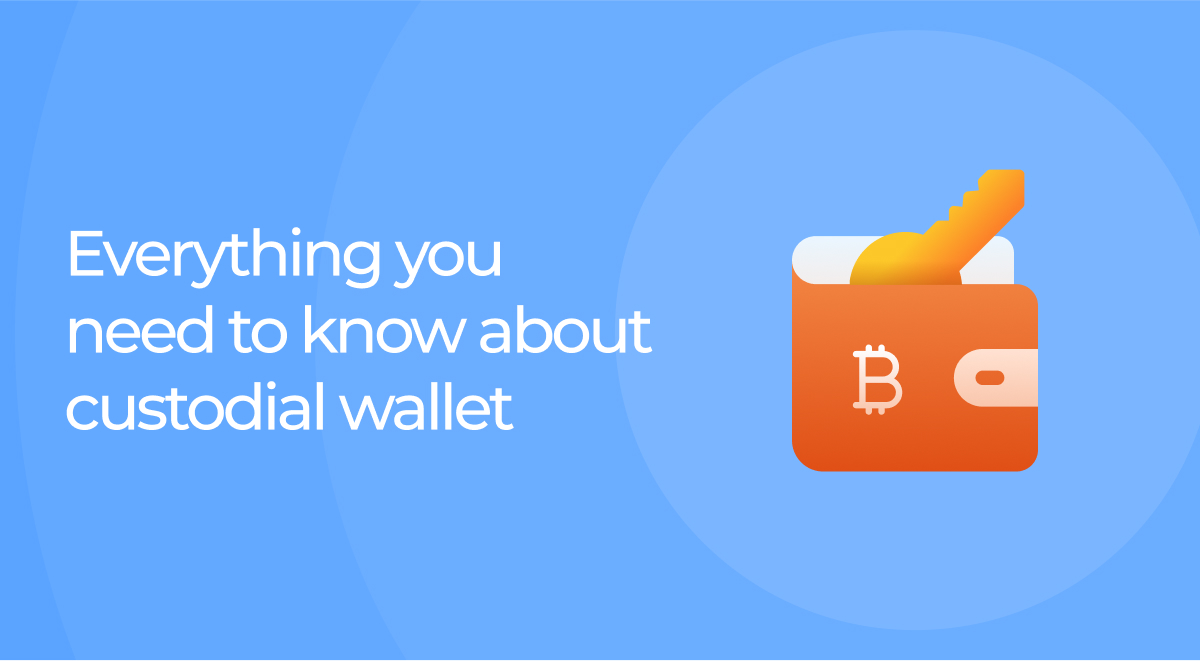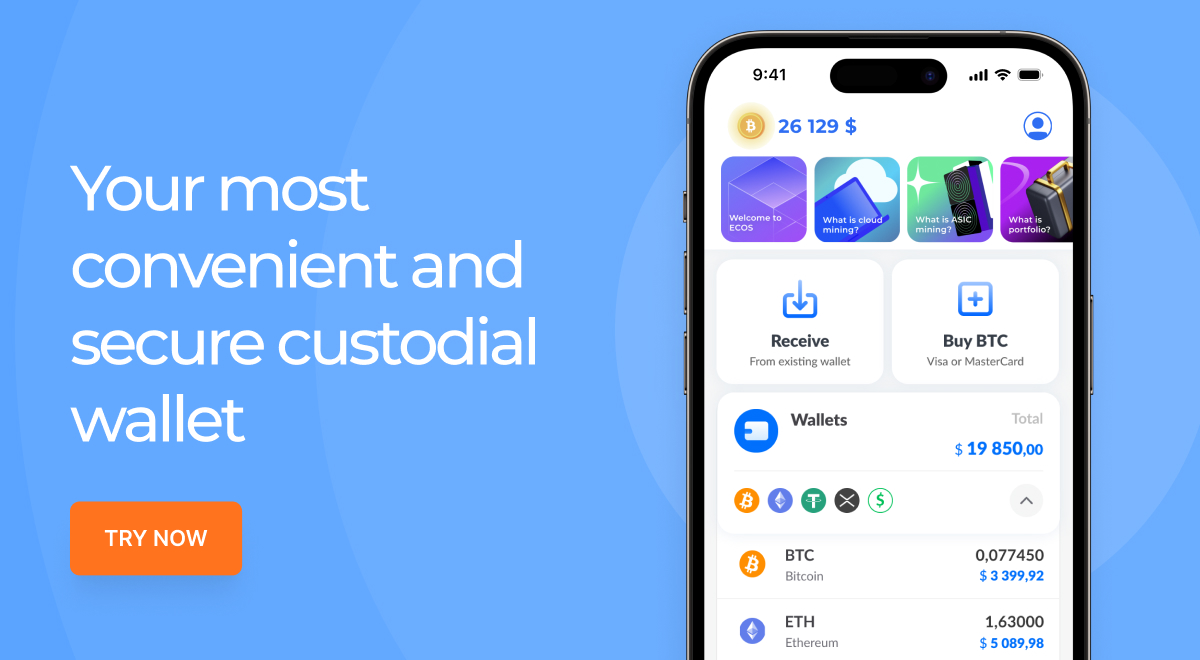Everything you need to know about custodial wallet

Introduction
As wallets continue to evolve from a simple store-of-value product to a critical infrastructure component and passport that underpins everything in web3, we examine what to look for as you explore the next iteration of the internet.
When you’re investing in cryptocurrency, the right wallet is essential. Crypto wallets help to keep your assets safe by ensuring that only authorized people can access the funds. However, it can take a little time to choose the best type of wallet for you.
What is a Custodial Wallet?
A custodial wallet is a type of cryptocurrency wallet where a third-party service provider holds and manages the private keys for the user. This means that the user does not have direct control over their cryptocurrency holdings and must rely on the custodian to manage their funds on their behalf. Hence, choosing a reliable wallet/custodian is crucial.
How custodial wallets work
When a user creates an account with a custodial wallet provider, the provider generates a unique set of private and public keys for the user. The private keys are stored securely by the provider, while the public keys are used to send and receive cryptocurrency transactions. When the user wants to access their funds, they must log in to their account with the provider and make transactions through the provider’s platform.
Custodial vs. non-custodial wallets
Here are some differences between custodial and non-custodial wallets
Control: Custodial wallets provide a third-party service provider with control over a user’s private keys, while non-custodial wallets give the user complete control over their private keys.
Security: Custodial wallets are generally considered to be more secure than non-custodial wallets, as they often offer advanced security features like two-factor authentication, cold storage, and insurance policies that protect users’ funds in case of theft or loss. However, non-custodial wallets can be secure if users take the necessary precautions to safeguard their private keys.
Convenience: Custodial wallets are generally easier to use than non-custodial wallets, as users don’t need to worry about managing their private keys or dealing with complex technical setups. Non-custodial wallets, on the other hand, offer greater control and privacy but can be more difficult to use for beginners.
Fees: Custodial wallets may charge fees for their services, such as transaction fees or account management fees. Non-custodial wallets may also charge fees, but these are often lower than those charged by custodial wallets.
Philosophy: Finally, some users may prefer non-custodial wallets on philosophical grounds, as they believe that cryptocurrencies should be decentralized and that users should have complete control over their funds.
Pros of custodial wallets
- Custodial wallets are generally easier to use than non-custodial options, as users don’t need to worry about managing their private keys or dealing with complex technical setups.
- Custodial wallets are typically more secure than non-custodial options, as they may offer advanced security features like two-factor authentication, cold storage, and insurance policies that protect users’ funds in case of loss or theft.
- Custodial wallet providers often have dedicated customer support teams that can help users with any issues they encounter, making it easier for beginners to get started with cryptocurrency.
- Many custodial wallets have user-friendly interfaces that make it easy for users to buy, sell, and trade cryptocurrencies. This can be especially helpful for those who are new to the market and may be intimidated by more complex platforms.
Tips to help ensure the security using a custodial wallet
- Research different custodial wallet providers and choose one that has a good reputation for security and reliability.
- Two-factor authentication (2FA) adds an extra layer of security to your account by requiring a second form of authentication in addition to your password. Many custodial wallet providers offer 2FA as an option, so be sure to enable it if it’s available
- Never share your account login information or private keys with anyone else, and be wary of phishing scams that may try to trick you into revealing your account details.
- Keep an eye on your account activityand report any suspicious transactions to your custodial wallet provider immediately.
The example of custodial wallet
One custodial wallet that’s worth mentioning is ECOS. ECOS is one of the best crypto wallet and exchange that offers a range of features for users, including support for multiple cryptocurrencies, 24/7 customer support, and advanced security features like two-factor authentication and cold storage. While ECOS may not be the right choice for everyone, it’s worth considering for those who are looking for a reliable and secure custodial wallet option.
Conclusion
To sum up, custodial wallets can be a good option for cryptocurrency users who prioritize ease of use and security. By relying on a third-party service provider to manage their funds, users can benefit from features like two-factor authentication, insurance policies, and user-friendly interfaces. However, it’s important to keep in mind that using a custodial wallet means sacrificing some degree of control over your funds, and users should take steps to protect their accounts and assets.










